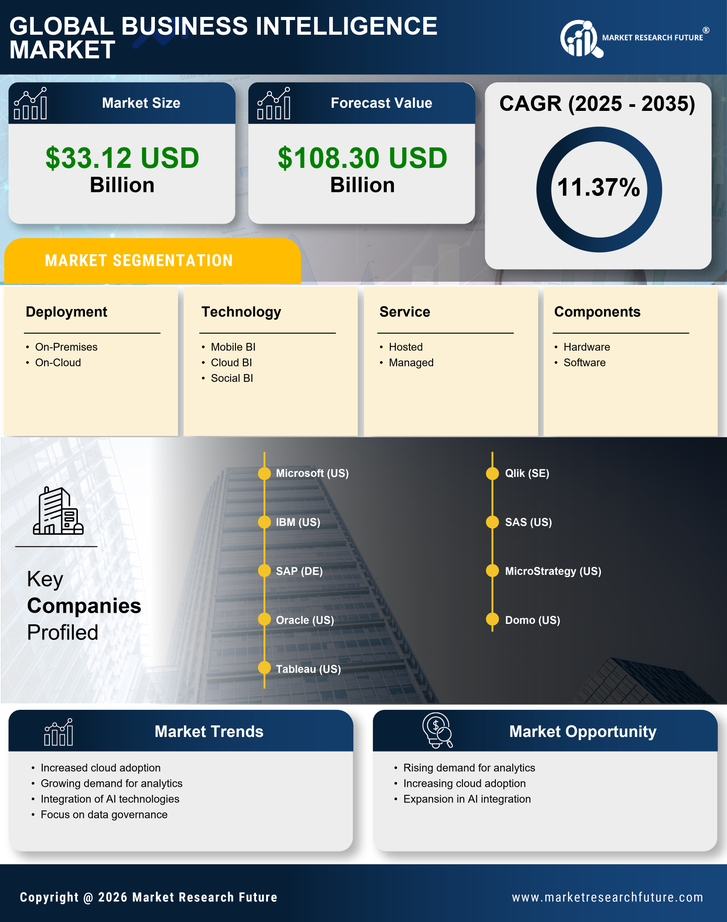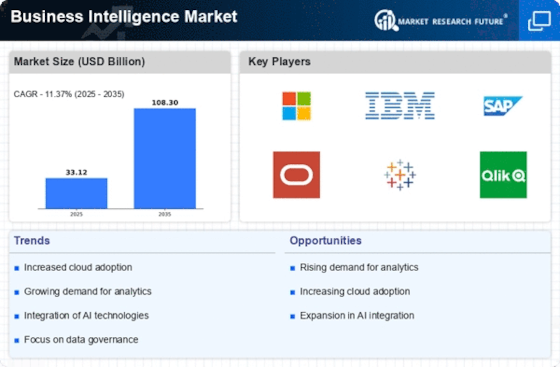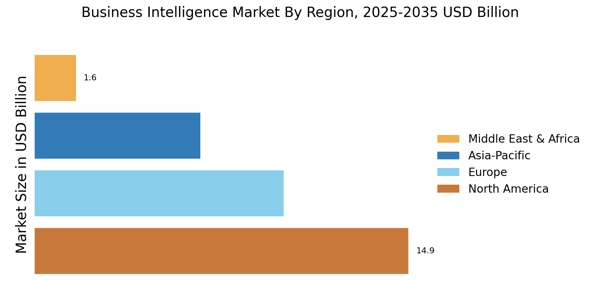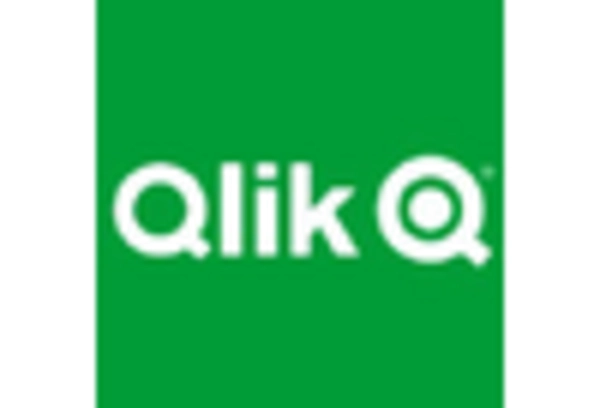The Business Intelligence Market is currently characterized by a dynamic competitive landscape, driven by the increasing demand for data-driven decision-making across various sectors. Leading vendors such as Microsoft, IBM, and SAP continue to strengthen their business intelligence market share through innovation and strategic partnerships.Key players such as Microsoft (US), IBM (US), and SAP (DE) are at the forefront, leveraging their technological prowess to enhance their offerings. Microsoft (US) focuses on integrating artificial intelligence into its Power BI platform, thereby enhancing user experience and analytical capabilities. IBM (US), on the other hand, emphasizes its cloud-based solutions, aiming to provide scalable and flexible BI tools that cater to diverse business needs. SAP (DE) is strategically positioning itself through partnerships and acquisitions, enhancing its analytics capabilities to better serve enterprise clients. Collectively, these strategies not only bolster their market presence but also intensify competition, as companies strive to innovate and meet evolving customer expectations. In terms of business tactics, companies are increasingly localizing their operations and optimizing supply chains to enhance efficiency and responsiveness. The Business Intelligence Market appears moderately fragmented, with a mix of established players and emerging startups. This structure allows for a diverse range of solutions, although the influence of key players remains substantial, as they set industry standards and drive technological advancements. In August 2025, Microsoft (US) announced a significant upgrade to its Power BI platform, incorporating advanced machine learning features that allow users to generate predictive analytics with greater accuracy. This move is strategically important as it not only enhances the platform's functionality but also positions Microsoft as a leader in the integration of AI within BI tools, potentially attracting a broader customer base seeking sophisticated analytical capabilities. In September 2025, IBM (US) unveiled its new cloud-based analytics suite, designed to provide real-time insights for businesses operating in fast-paced environments. This strategic initiative underscores IBM's commitment to cloud technology and reflects a growing trend towards real-time data processing. By offering solutions that cater to immediate business needs, IBM is likely to strengthen its competitive edge in the market. In July 2025, SAP (DE) completed the acquisition of a leading analytics startup, which is expected to enhance its existing capabilities in data visualization and reporting. This acquisition is indicative of SAP's strategy to bolster its product offerings and remain competitive in a rapidly evolving market. By integrating innovative technologies from the startup, SAP aims to provide more comprehensive solutions that meet the demands of modern enterprises. As of October 2025, the Business Intelligence Market is witnessing trends such as increased digitalization, a focus on sustainability, and the integration of artificial intelligence. Strategic alliances among key players are shaping the competitive landscape, fostering innovation and collaboration. Looking ahead, it is anticipated that competitive differentiation will increasingly hinge on technological innovation and supply chain reliability, rather than solely on price. Companies that prioritize these aspects are likely to thrive in an environment where customer expectations continue to evolve.


















